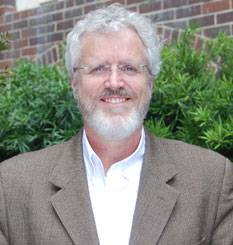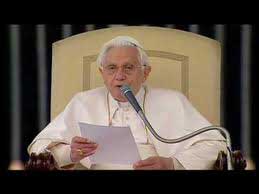HUMAN HISTORY IS A HISTORY OF SALVATION – Psalm 126
VATICAN CITY, OCT. 12, 2011 (Zenit.org).- Here is a translation of the Italian-language catechesis Benedict XVI gave today during the general audience held in St. Peter’s Square. The Pope today continued his catecheses on prayer with a reflection on Psalm 126.
* * *
In the previous catecheses, we have meditated on a number of psalms of lament and of trust. Today, I would like to reflect with you on a notably joyous psalm, a prayer that sings with joy the marvels of God. It is Psalm 126 — according to Greco-Latin numbering, 125 — which extols the great things the Lord has done with His people, and which He continues to do with every believer.
The psalmist begins the prayer in the name of all Israel by recalling the thrilling experience of salvation:
“When the Lord restored the fortunes of Zion,
we were like those who dream.
Then our mouth was filled with laughter,
and our tongue with shouts of joy” (Verses 1-2a).
The psalm speaks of “restored fortunes”; that is, restored to their original state in all their former favorability. It begins then with a situation of suffering and of need to which God responds by bringing about salvation and restoring the man who prays to his former condition; indeed, one that is enriched and even changed for the better. This is what happens to Job, when the Lord restores to him all that he had lost, redoubling it and bestowing upon him an even greater blessing (cf. Job 42:10-13), and this is what the people of Israel experience in returning to their homeland after the Babylonian exile.
This psalm is meant to be interpreted with reference to the end of the deportation to a foreign land: The expression “restore the fortunes of Zion” is read and understood by the tradition as a “return of the prisoners of Zion.” In fact, the return from exile is paradigmatic of every divine and saving intervention, since the fall of Jerusalem and the deportation into Babylon were devastating experiences for the Chosen People, not only on the political and social planes, but also and especially on the religious and spiritual ones. The loss of their land, the end of the davidic monarchy and the destruction of the Temple appear as a denial of the divine promises, and the People of the Covenant, dispersed among the pagans, painfully question a God who seems to have abandoned them.
Therefore, the end of the deportation and their return to their homeland are experienced as a marvelous return to faith, to trust, to communion with the Lord; it is a “restoring of fortunes” that involves a conversion of heart, forgiveness, re-found friendship with God, knowledge of His mercy and a renewed possibility of praising Him (cf. Jeremiah 29:12-14; 30:18-20; 33:6-11; Ezekiel 39:25-29). It is an experience of overflowing joy, of laughter and of cries of jubilation, so beautiful that “it seems like a dream.” Divine help often takes surprising forms that surpass what man is able to imagine; hence the wonder and joy that are expressed in this psalm: “The Lord has done great things.” This is what the nations said, and it is what Israel proclaims:
“Then they said among the nations,
‘the Lord has done great things for them.’
The Lord has done great things for us;
we are glad” (Verses 2b-3).
God performs marvelous works in the history of men. In carrying out salvation, He reveals Himself
to all as the powerful and merciful Lord, a refuge for the oppressed, who does not forget the cry of the poor (cf. Psalm 9:10,13), who loves justice and right and of whose love the earth is filled (cf. Psalm 33:5). Thus, standing before the liberation of the People of Israel, all the nations recognize the great and marvelous things God has accomplished for His People, and they celebrate the Lord in His reality as Savior.
And Israel echoes the proclamation of the nations, taking it up and repeating it once more — but as the protagonist — as a direct recipient of the divine action: “The Lord has done great things for us”; “for us” or even more precisely, “with us,” in hebrew ‘immanû, thus affirming that privileged relationship that the Lord keeps with His chosen ones, and which is found in the nameEmmanuel, “God with us,” the name by which Jesus would be called, His complete and full revelation (cf. Matthew 1:23).
Dear brothers and sisters, in our prayer we should look more often at how, in the events of our own lives, the Lord has protected, guided and helped us, and we should praise Him for all He has done and does for us. We should be more attentive to the good things the Lord gives to us. We are always attentive to problems and to difficulties, and we are almost unwilling to perceive that there are beautiful things that come from the Lord. This attention, which becomes gratitude, is very important for us; it creates in us a memory for the good and it helps us also in times of darkness. God accomplishes great things, and whoever experiences this — attentive to the Lord’s goodness with an attentiveness of heart — is filled with joy. The first part of the psalm concludes on this joyous note. To be saved and to return to one’s homeland from exile are like being returned to life: Freedom opens up to laughter, but is does so together with a waiting for a fulfillment still desired and implored. This is the second part of our psalm, which continues:











 hy, O
hy, O  THE INTERIOR CASTLE
THE INTERIOR CASTLE
